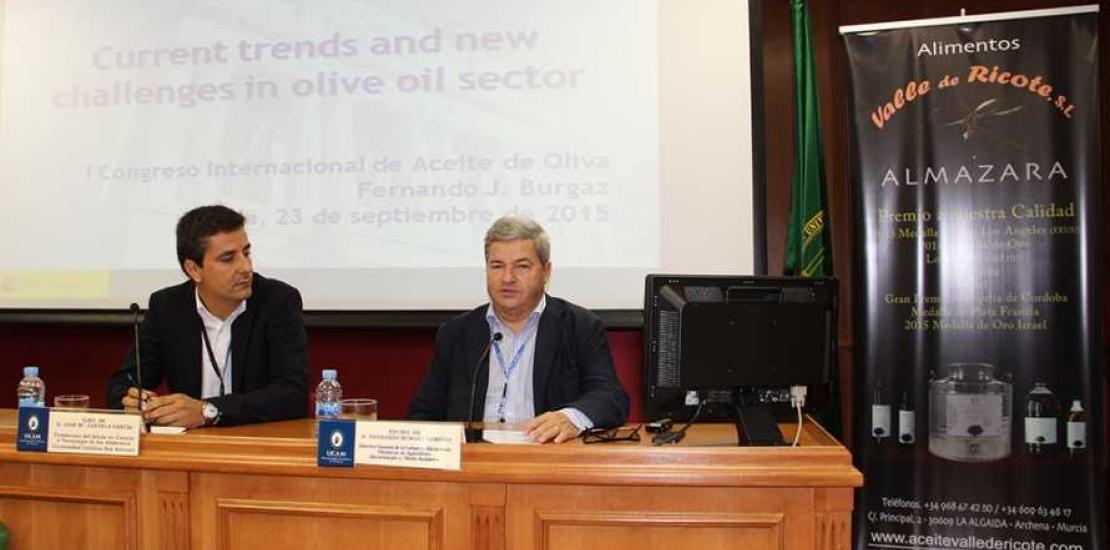“Olive oil slows the progression of breast cancer”
This is one of the ideas exposed during the first Olive Oil International Congress held at UCAM
The Catholic University of Murcia inaugurated last Wednesday 23rd of September the 1st International Congress about Olive Oil “Current trends and new challenges in the olive oil sector”, organised by the institution and the Séneca Foundation. During the event intervened Estrella Núnez, vice dean of research of UCAM; the director of the Congress, José Antonio Gabaldón, and Fulgencio Pérez Hernández, general director of Production and Food Markets of the CARM (Autonomous Community of the Murcia Region), who highlighted the quality of the olive oil produced in the Region. With a 21,000 hectares area of cultivated fields, “it is a sector small in quantity, which prevents us to compete with other autonomous communities, but with an outstanding product quality that enables us to enter the competition” he explained.
Spain, reflection of the world
Jean Louis Barjol, executive director of the International Olive Council, discussed the current world’s situation in the sector. He pointed out Spain’s domestic consumption of olive oil, which reaches 500,000 tons, and a production between 80,000 and 1,600,000 tons, depending on the year. “Spain represents, on average, 45% of the world production of olive oil. This means that what is happening here has an impact at a global level”.
Decrease of the olive oil consumption
The general director of the Food Industry (Agriculture, Alimentation and Environment Ministry), Fernando J. Burgaz, imparted the opening conference during which he pointed out the decrease of the olive oil consumption in Spain in the last years, “with an increase in oils of lower quality”. He further explained that “logically”, the economic situation of the past years had an impact on the market, but he also noted that it is not the only aspect: “We have to fight harder so that we can realize the quality of what we have”. Moreover, he compared the olive oil sector with others from the food industry in order to demonstrate the need to innovate. “The question the sector has to ask itself is whether can we continue with the current practices and policies or if the time has come to follow the wave of the other food sectors” he pointed out.
Olive oil authentication
The head of the Lipids Characterization and Quality Department of the Instituto de la Grasa of the CSIC, Manuel León, focused his presentation on one of the main concerns of the consumer: the product authentication. He ensured that these face a regulation and a rigorous control process, which “are usually met”. He insisted that “sometimes, it is not that laws are not met; sometimes, the legislation can be incomplete, or evolve too slow compared to the requirements and needs of consumption”.
Two representatives of the CIDAF intervened on the second day of the Congress; the director, Alberto Fernández, who discussed the composition of the olive oil; and the coordinator of the Scientific Research, Antonio Segura, who focused his presentation on the bioactive components in Olea Europea.
Breast cancer
“The olive oil slows down the progression of breast cancer“, is one of the ideas exposed by Eduard Escrich, member of the multidisciplinary Group for the Breast Cancer Study and researcher at the Department of Cellular Biology, Physiology and Immunology of the Universidad Autonoma of Barcelona. To prove this point, he based himself on researches conducted during more than 30 years, which have allowed him to characterized one of the complex molecular mechanisms of action that make this possible. In this regard, he asserted that the olive oil does not act as a medication but as a protector.




